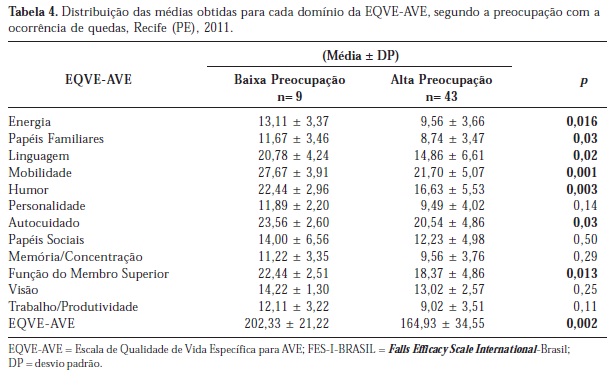The aim of this cross-sectional study was to evaluate the fear of falling of 52 chronic post-stroke individuals and to assess its relationship with measures of functional independence and quality of life (QOL). Fear of falling was assessed by the Brazilian version of Falls Efficacy Scale International (FES-I-BRAZIL) and functional independence by the Functional Independence Measure (FIM) and QOL by the Stroke Specific Quality of Life (SSQOL) scale. Spearman's correlation coefficients were calculated to verify the associations between FES-I-BRAZIL and the other instruments, and the Mann-Whitney U test to compare groups with low and high fall concerns. There was a predominance of individuals with high concerns regarding falling, higher QOL, and independents. FES-I-BRAZIL was statistically associated with FIM and SSQOL. Significant relationships were also found between FES-I-Brazil with FIM transfer and locomotion sub-scales, as well as with the following SSQOL energy, family role, language, mobility, mood, self-care, and upper extremity function domains. Thus, fear of falling may contribute to reduced functional independence and QOL in post-stroke individuals and should be included in the evaluation process of these patients to ensure greater benefits during rehabilitation.
Fear of falling; Functional independence; Quality of life; Stroke





